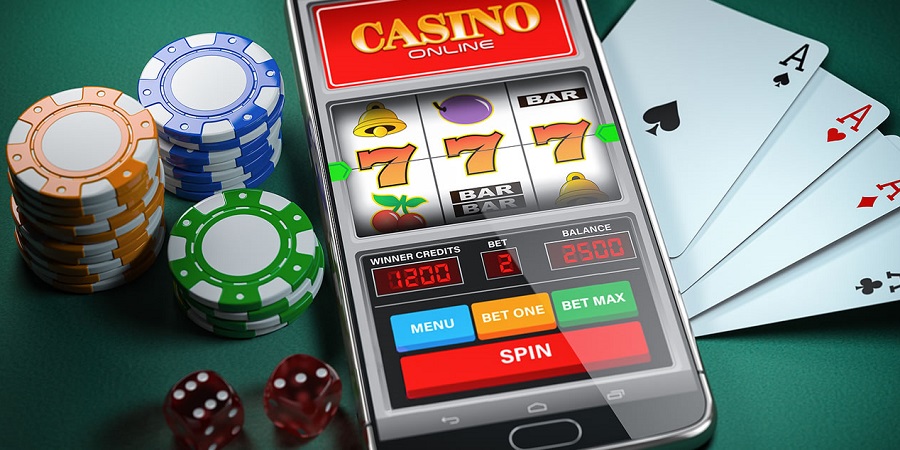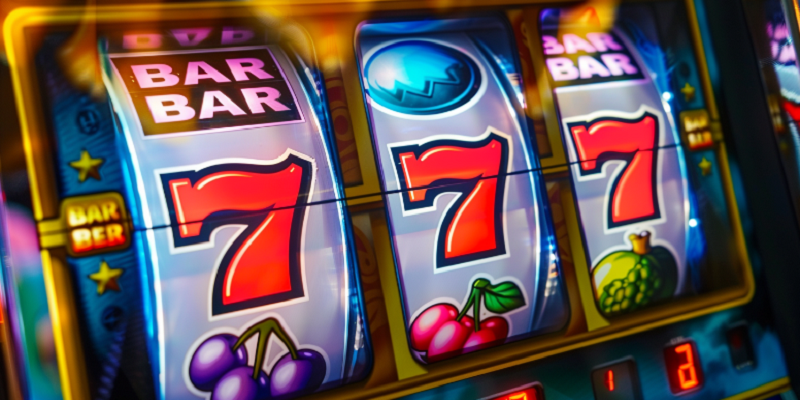It’s no secret that the gambling landscape across Ireland and the UK has changed dramatically in the past few years. From affordability checks to tighter advertising rules, even the most casual punters have started to feel the squeeze. While these measures are aimed at protecting players, many Irish bettors now find themselves bumping into systems that were never actually designed for them. One of the most talked-about examples is GamStop — the UK’s national self-exclusion scheme. And here’s the thing: Ireland doesn’t use it. That’s led to a quiet but noticeable shift in where Irish players choose to wager.
What GamStop Does — And Why It Doesn’t Apply in Ireland
GamStop is a UK-based self-exclusion programme that lets players block themselves from every gambling site licensed by the British Gambling Commission. Once you sign up, that’s it — you’re locked out of all participating sites for the period you select. It’s a great safety net for people struggling with gambling harm, but it only applies to casinos and bookmakers registered in the UK.
Here’s the twist: Ireland isn’t part of GamStop. The Republic has its own regulatory setup, which means Irish players aren’t automatically linked to the British exclusion list. So, while someone in London who self-excludes can’t log in anywhere under the UKGC licence, a player in Dublin can still access international platforms licensed elsewhere. That’s why many see headlines about “Irish casinos not on GamStop” — it’s not a loophole, just a reflection of separate systems.
The Real Reasons Punters Look Beyond GamStop Sites
Ask around any pub or online forum, and you’ll hear similar reasons from Irish punters. Some feel boxed in by the restrictions now common on UK-regulated platforms. Limits on stakes, ongoing affordability checks, and reduced bonus offers have changed how betting feels. What used to be a Saturday flutter can now feel like paperwork.
Others simply want a bit more flexibility. Offshore casinos often have larger game libraries, different promotions, and payment options that include everything from Revolut to crypto. The appeal isn’t necessarily rebellion — it’s convenience. Imagine logging into a site that lets you play slots, blackjack, and a quick accumulator bet on Leinster all under one roof, without half a dozen ID checks in between.
Of course, this freedom comes with a warning label. The lack of UK oversight means players need to take responsibility for their own boundaries. Seeking flexibility shouldn’t become an excuse for risky habits. A punter who struggles with losses in the UK won’t magically handle them better abroad unless the mindset changes.
Regulation 101: How Non-GamStop Casinos Are Licensed
Every legitimate casino, whether it’s based in Dublin, Malta or Curaçao, needs a licence. It’s the stamp that says they follow basic fairness, security, and anti-fraud standards. The difference is in who issues that licence and how strict they are.
Malta and the Isle of Man tend to have rigorous rules similar to the UK, including player protection and responsible gambling checks. Curaçao and Anjouan offer more leniency, appealing to operators that prefer fewer restrictions and faster approvals. Kahnawake in Canada has also become a safe harbour for hybrid operators targeting both Europe and North America.
For players, the key is to check transparency. A trustworthy site displays its licence number and regulator at the bottom of every page, offers clear terms, and works with recognised payment providers. Red flags include vague company info, unrealistic bonuses, or hidden withdrawal rules.
Value vs Risk: A Straight Comparison for Irish Players
Let’s be honest — most Irish punters are value hunters at heart. Whether it’s a boosted accumulator or a slot with 98% RTP, we love squeezing the most out of every euro. That’s why many have started comparing odds, games, and payouts between local and offshore platforms.
Non-GamStop casinos often win on variety. You might find thousands of slots, progressive jackpots, and instant-win games not yet licensed in the UK. Payment options are broader too — traditional cards, Skrill, Neteller, or even stablecoins like USDT and USDC. Deposits are usually instant, and withdrawals can range from a few hours to a couple of days.
But value doesn’t mean safety. Offshore sites can change rules quickly, and not all handle disputes fairly. That’s why punters should weigh every advantage against the potential downside: fewer local protections, slower response from regulators, and more self-reliance when things go wrong.
Responsible Gambling Without GamStop: Tools That Actually Work
Just because a casino isn’t under GamStop doesn’t mean you’re on your own. Many operators now provide in-house tools that mimic the best features of responsible gambling systems. You can set deposit or loss limits, enable session reminders, and take timed breaks that lock your account temporarily.
Outside the casino, players can use third-party apps like BetBlocker or Gamban, which block gambling sites across all devices — laptop, phone, or tablet. Some Irish banks even offer merchant blocking or spending caps, giving extra layers of control.
And let’s not forget the human side. There are support groups and helplines across Ireland that offer confidential help if betting starts feeling like more than a hobby. Having these safety nets in place doesn’t make you weak; it makes you smart.
Bankroll Discipline for Explorers: A Practical Mini-Framework
The best punters, whether they’re in Cork or Galway, share one trait — discipline. Before you sign up anywhere, decide your entertainment budget. Maybe it’s €50 a week, maybe €200 a month, but it must be an amount you can afford to lose. Once that’s set, stick to it religiously.
Use a separate e-wallet or prepaid card for gambling funds so your day-to-day cash isn’t touched. Set a time limit for each session — say, 90 minutes — and stick to it. The moment you find yourself chasing losses, that’s the sign to walk away.
A good trick is to log your play just like a fitness tracker. Record deposits, wins, and time spent. It sounds nerdy, but it turns gambling into a monitored hobby instead of a reflex.
Payments, KYC, and Speed: What to Test First
One of the perks of exploring new casinos is seeing how they handle withdrawals. Always start small — make a €20 or €30 deposit, play a few rounds, then request a withdrawal. The time it takes to land in your account says a lot about the platform.
Fast payments, clear verification steps, and no hidden fees are all green flags. If a site delays cashouts or asks for random extra documents, take that as a warning. The same goes for unclear currency conversions — the exchange rate can quietly eat into your winnings.
Crypto might sound tempting, but treat it like any other payment method: double-check fees, and use a wallet you control.
Choosing Safely: A 10-Point Checklist Before You Sign Up
Here’s what to look for when browsing: a visible licence, real company address, and full bonus terms in plain language. Check that the site publishes RTP percentages and provider names. Make sure there’s a clear path for complaints or dispute resolution.
If they accept euro payments without conversion, even better. Reliable casinos list multiple withdrawal options and stick to published timeframes. Test the live chat — if the support agent can’t answer basic questions about wagering or KYC, move on.
Security should also matter. A proper HTTPS connection, privacy policy, and cookie statement show the operator at least respects data laws.
Final Word: Freedom With Guardrails
For many Irish players, exploring beyond GamStop sites isn’t about rebellion; it’s about choice. The digital gambling world is evolving faster than ever, and players naturally want platforms that fit their lifestyle, currency, and sense of fairness. But freedom only works if it’s handled with discipline.
If you’re tempted to try something new, start small. Test withdrawals, read the fine print, and make use of responsible gambling tools from day one. Ireland’s gambling scene is moving towards its own licensing framework, and until then, punters need to be their own regulators.
The best approach? Enjoy the variety, stay sharp, and remember that entertainment should never turn into pressure. When done responsibly, exploring Irish casinos not on GamStop can simply be another way to enjoy the thrill of the game — without losing control of the fun.
FAQs Irish Punters Actually Ask
Is it legal for Irish residents to play at non-GamStop casinos?
Yes, it is — provided the site accepts Irish players and holds a recognised international licence.
Can I still set gambling limits without GamStop?
Absolutely. Most sites have built-in controls, and there are external apps and banking tools to help.
Do I still need to verify my identity?
Legit operators will always require ID for withdrawals. It’s there to prevent fraud, not to annoy you.
Why are bonuses bigger on these sites?
Because they’re not bound by UK marketing limits, but always read the wagering conditions before claiming.
How long should withdrawals take?
Anywhere from one hour to two days is reasonable, depending on method and verification.
What if I’ve self-excluded in the UK but live in Ireland now?
You’ll still be blocked from UKGC sites, but you can legally register with Irish or offshore casinos. Just be mindful of your reasons — don’t undo the progress you’ve made.






